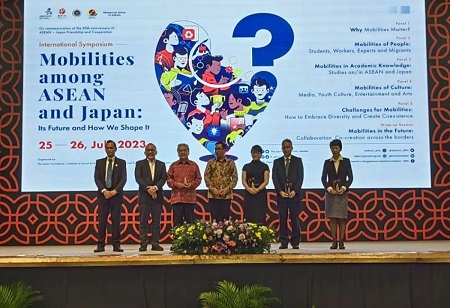The Indonesian government has expanded its research collaboration with Japan, to a particular emphasis on industry, transportation, and biodiversity. The restored collaboration aimed to boost the ability of scholars in both nations to comprehend an array of modern challenges and difficulties. The head of the Social and Humanities Sciences Organization at the National Research and Innovation Agency (BRIN) said Indonesia will be sending researchers or students to Japan as an outcome of the two countries' collaboration on mobility on 25th July (Tuesday) in Jakarta. In addition, Indonesia might also recruit Japanese professors and researchers to their country in order to foster the ecosystem, he confirmed.
An international symposium on the five decades of friendship and collaboration between Japan and the Association of Southeast Asian Nations (ASEAN), which is right now being hosted by Indonesia, is going to be held by BRIN and the Japan Foundation on July 25-26, 2023. Since the bloc's founding in 1967, Indonesia has carried out a number of research projects on ASEAN. In the meantime, the nation started researching Japan in 2001.
Burhani claims that since the majority of Indonesian studies concentrate solely on a single subject, they are still being given a wider context. Laksana Tri Handoko, Director of BRIN, stated hope that the research partnership formed between Indonesia and Japan will continue to inspire and make it easier for Indonesian academics to pursue studies in Japan. He continued by saying that in the past, the majority of Indonesian students studying in Japan are ones whose tuition was paid for by the government.
However, he specified that many students now make the decision to study in English-speaking nations, whether they are self-funded or recipients of the government-funded Education Fund Management Institution (LPDP) scholarship. "We want to reinforce it (the cooperation), considering Japan is one of the most crucial partners of Indonesia. We should maintain and even boost our relations with Japan through exchanges of not only students but also researchers, academics, and so on", he concluded.

